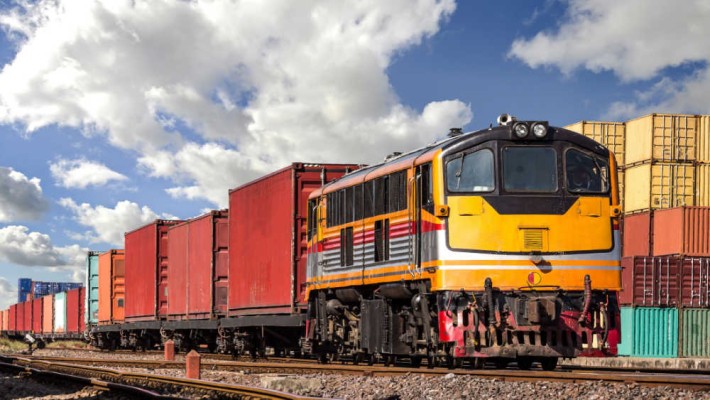Freight Forwarder Insights
Huin International Logistics Latest Articles
Introduction to Rail Freight for Newcomers
Transporting goods by rail is increasingly vital in the global economy. It offers an efficient, cost-effective, and environmentally friendly solution. This document provides insights into rail freight, its benefits, and key considerations for businesses planning to utilize trains for transporting their products. Additionally, we offer a comparison between rail, maritime, and air freight to illustrate each mode's role in global logistics.
Navigating the complexities of shipping doesn't have to be daunting. HUIN Freight Forwarding simplifies the process with customized and efficient solutions for both domestic and international deliveries. Our experienced team ensures your assets arrive safely and swiftly while eliminating the stress of the logistics. Whether it's air, sea, road, or rail transport, we cater to all your shipping requirements. We excel in achieving seamless customs compliance and integrated logistics, making shipping straightforward and convenient.
Reach out to HUIN Freight Forwarding today for a hassle-free shipping experience. Contact us now.
Rail freight forwarding involves the transportation of goods via railway networks and plays a critical role in the logistics industry. In the United Kingdom, rail systems significantly support business operations. Below are key aspects of rail freight:
Cost-Effectiveness: Transporting goods by rail can lead to substantial cost savings. It often proves more economical than road transport, particularly over long distances, due to trains' capacity to move larger volumes of freight and consume less fuel per unit.
Reliability of Rail Networks: Railways offer dependable service with minimal disruptions. Unlike road transport, rail is less affected by factors such as traffic congestion or mild weather conditions. This reliability allows businesses to plan their shipments with confidence in timely deliveries.
Environmental Benefits: Trains are more fuel-efficient compared to road vehicles, offering a significant reduction in carbon emissions—up to 76% according to research. This aspect is increasingly vital for businesses, especially in the China, where environmental considerations are becoming central to operational strategies.
Alleviating Road Congestion: Utilizing rail freight reduces the number of trucks on the road, leading to decreased traffic congestion and enhancing road safety. The risk of accidents is also lower with rail transport compared to road, reducing potential damage to goods in transit.
When contemplating the use of rail freight, it is crucial to evaluate several essential factors:
Infrastructure and Network Connectivity: The effectiveness of rail freight largely hinges on the availability of rail networks. Certain regions lack adequate rail access, necessitating additional road transport to connect to rail stations. Companies should assess the proximity and connectivity of their supply chains to these rail networks.
Suitability for Specific Goods: Rail freight is particularly advantageous for transporting durable goods, but it may not be ideal for all product types. It is well-suited for non-perishable items, but less so for goods that spoil easily, are fragile, or require specialized handling. High-value items may also demand enhanced security measures.
Comprehensive Cost-Benefit Analysis: It is important to evaluate more than just the shipping expenses associated with rail transport. Consider additional costs such as transportation to and from rail facilities, storage fees, and potential delays. Balance these expenses against benefits such as increased shipping capacity and expedited movement over long distances.
